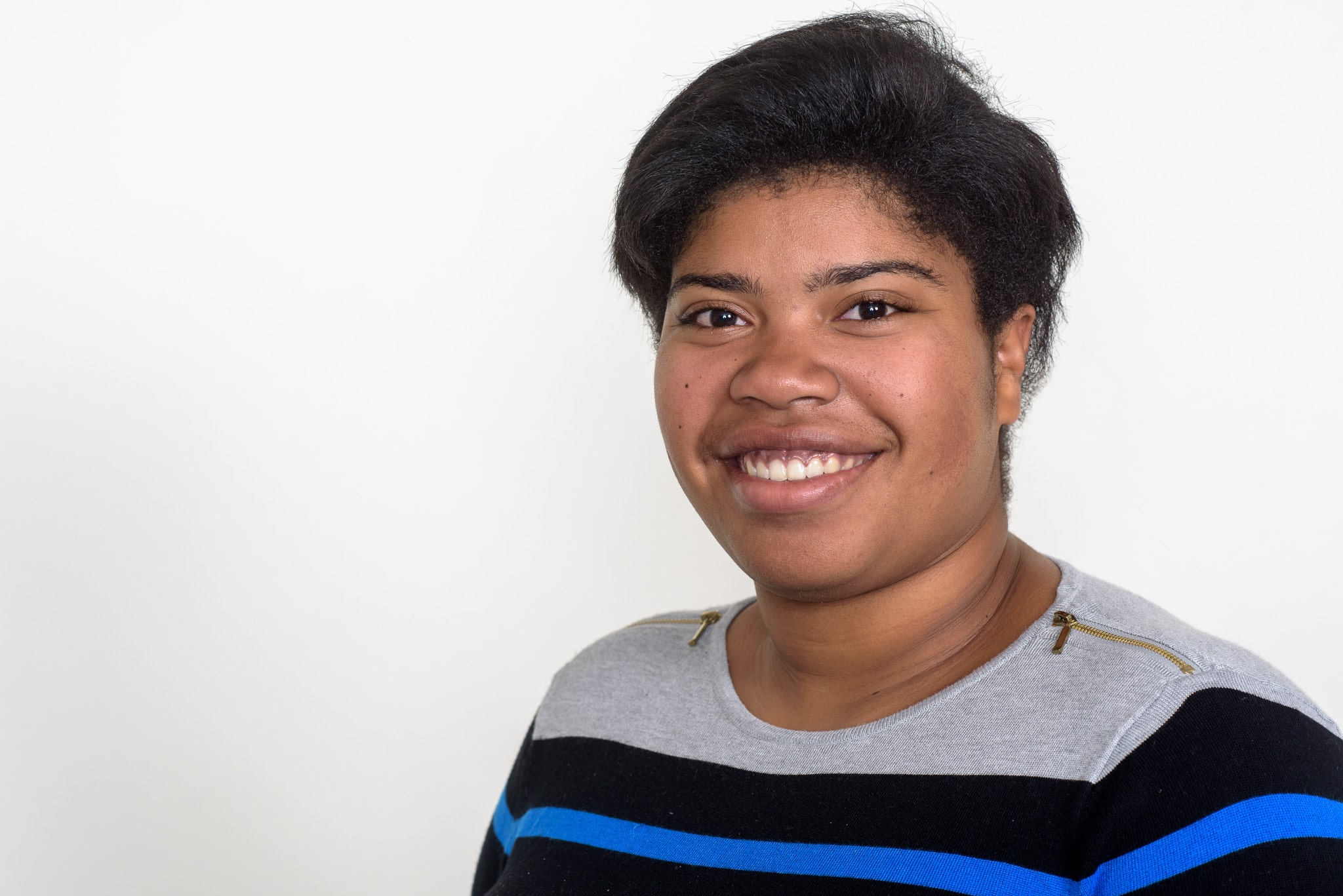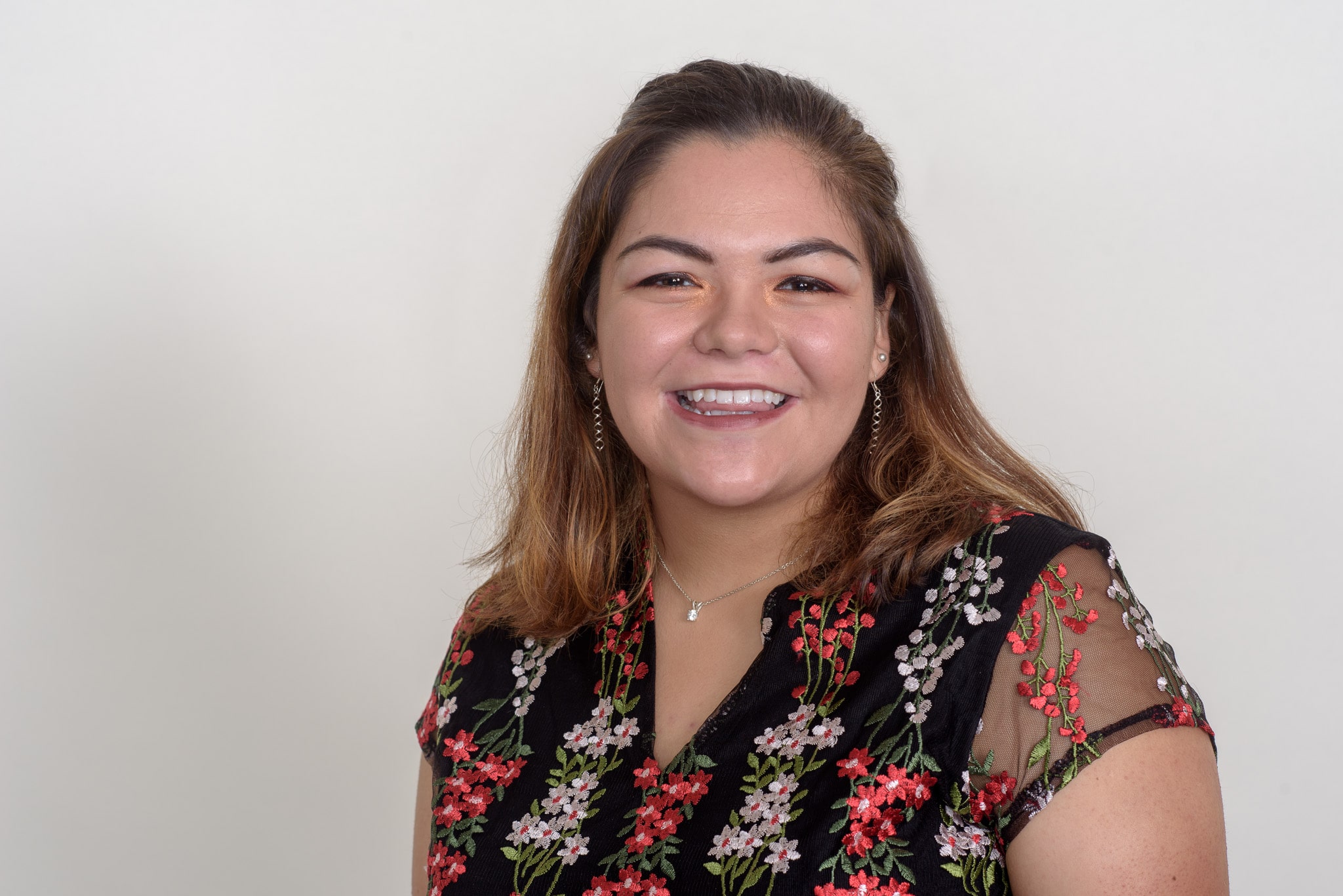Every Student, Every Day Intern Stories: Dominique
Every Student, Every Day Intern Stories: Dominique

SDSU Senior Dominique Patton always knew she was interested in helping kids, “I just didn’t want to be their teacher!” she laughs. On a more serious note, she adds that although her immediate family was middle class, seeing her extended family in South Central LA struggling made a deep impression. “My cousins went through the child welfare system; it was a nightmare,” she says. “Someone needed to help out in that situation, and I needed to find out what that job was.” That job was social work. But was that the route for her?
“I went to a job fair and saw a couple of social workers but was not impressed. They seemed tired.” When she met United Way’s Senior Impact Manager, Rachel Liber, she thought, “Whoah. This is the first person I’ve seen who seems to love her job!”
* * *
It’s just before Christmas when I meet Dominique, who brims with good cheer despite the often challenging circumstances her internship presents, along with the situations her students encounter.
“I’ve learned different ways to relate to these kids, to really hear them. For example, younger kids will get straight to the problem: they’ll be playing Legos and just randomly tell you important information. I’m learning to deal with all the surprises and just try to keep my composure.”
As a United Way social work intern assigned to Cherokee Point Elementary School in City Heights, Dominique’s caseload is comprised of students who are chronically absent for a range of reasons. As part of United Way’s absence-intervention initiative, Every Student, Every Day, interns work to understand the issues that students and families face. With additional logistical support from the school site, as well as clinical supervision and weekly coaching, Dominique meets with the students individually to uncover what’s getting in the way of their everyday attendance. In Mani’s case—as in most of the cases—the student’s struggle is the family’s struggle.
“Mani’s dad has a job but doesn’t make a lot of money,” Dominique explains. “He’s primarily responsible for the boy and is supposed to drop him off but always misses the start time. An hour after school starts, Mani shows up. Sometimes, he doesn’t show up at all.” With all the tardiness, Mani started falling behind in class, especially in reading and writing. “He was missing prime instruction time — time when he can actually learn.” Dominique believes Mani is a smart kid who isn’t very motivated. But that was about to change.
“I found someone in class who was here every day, on time. Mani looked up to this kid, who told me he actually enjoyed school. Immediately I put them together in a lunch group, and I kept pulling in this kid with us. They became best friends.”
She overheard them talking one day and realized she’d found a secret weapon:
Dude, are you coming tomorrow?
I don’t know… My dad said maybe not.
But you’re going to miss lunch group! You’re missing everything!
Dude, why are you always late?
Well, my dad…
Yeah, but we’re learning some really cool stuff!
“The next week, Mani kept showing up because his friend reminded him: we’re gonna do this project; we’re learning that new thing. Sometimes he’s still late, but now he’s more aware about missing school and trying to minimize his absences. In the past, he might have just shrugged his shoulders at missing school. Now he’s more, what did I miss?”
Dominique made a goal with Mani to get to school on time more often. “Now, he wakes his dad up early. It’s a small thing, but we’re getting there. And he’s not missing as many days.”
***
UWSD’s Every Student, Every Day initiative offers a set of interventions to increase school attendance and close the achievement gap by facilitating partnerships between schools, universities, community providers, families, and students. United Way collaborates closely with elementary schools in the San Diego region to improve outcomes for local children and their families. Every Student, Every Day has consistently produced positive results for children and families, including increased attendance for participating students.


